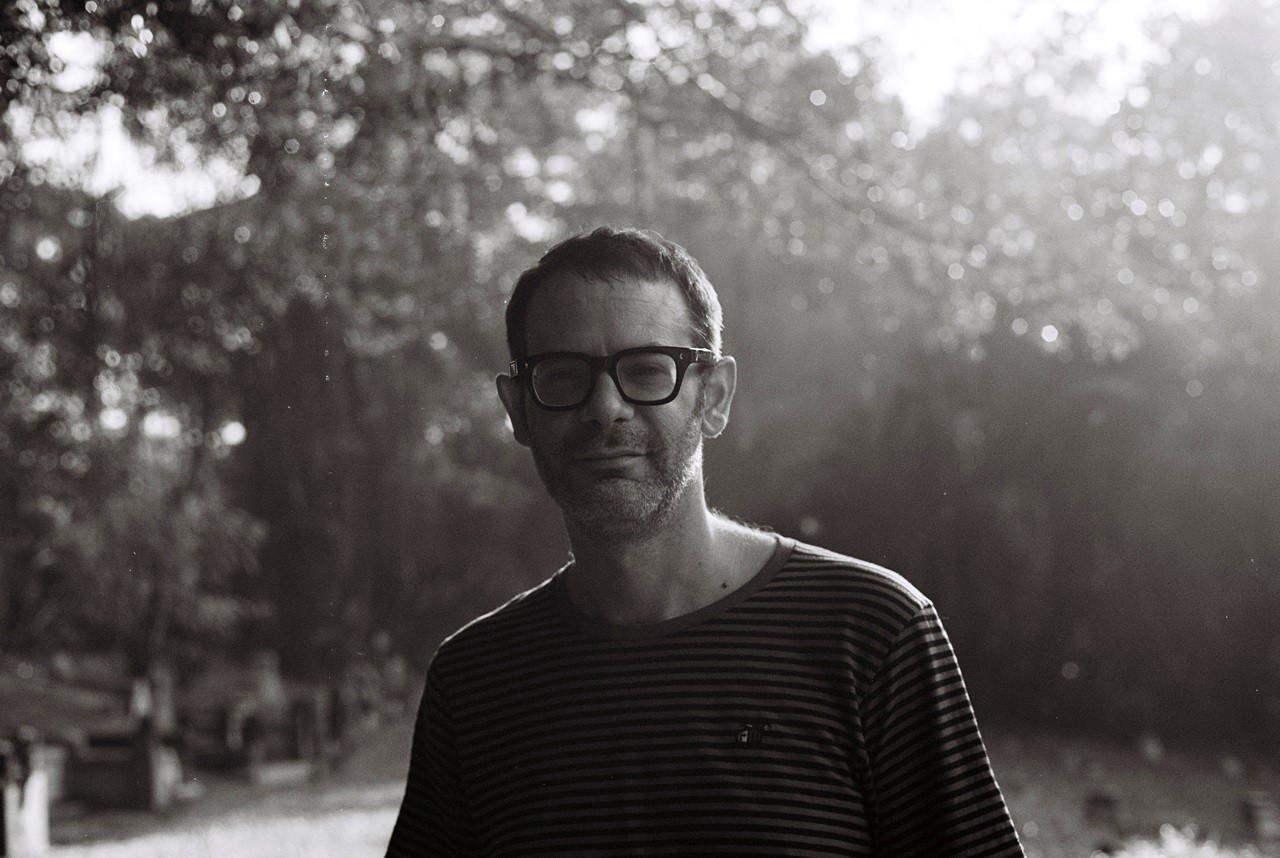NANG 3: Fiction — A Conversation with guest editor Amir Muhammad

What follows is a conversation between Yoo Un-Seong & John Torres and Amir Muhammad, appearing here in the same version (minus the brief introduction) published in Issue 2 of the magazine (pp.104–107).
YOU CAN MAKE THIS UP
Yoo Un-Seong: This interview is to hear from you about some main ideas, and the structure for Issue 3. John and I are now finalizing Issue 2. We asked contributors to write an essay on death and scars. Hopefully some contributors will write an essay in a mixed way between fiction and real story. So some articles in our issue could be slightly related with the idea of Issue 3… so we wish to hear from you about the Issue you’re preparing.
Amir Muhammad: Well, the concept is very simple and bold. It’s called “The Fiction Issue,” and I don’t know what will be in it because it’ll be an open call throughout the world. Anybody can submit with the idea that each piece of fiction…
YUS: Ah, for this issue you will do an open call…
AM: Yeah, I already know a few because I have published anthologies in Southeast Asia before, but of course I think we need to make it more than just Southeast Asia, so writers are not bound by nationality or whatever, but each story has to have some kind of connection with one specific Asian movie. So it could be a kind of fan fiction or it could be a story in which watching the movie or knowing the movie has some kind of relation to it or it could be even a fictionalized “making of,” that kind of thing or it could be like some kind of recreation… especially if it’s something like a lost movie. You can imagine things like that.
YUS: It sounds like a good idea. It might include even the piece of movie that doesn’t exist.
AM: Yes, but they all have to be “based on” something. Each story has to be anchored somewhat in one actual Asian movie, so that’s the general concept.
John Torres: So each piece is anchored in one Asian movie?
AM: Each story. Yeah. That is the original intention; so maybe about twenty stories and each story will have an illustration that makes use of elements from the original poster as well as elements from the story itself so it creates a new poster, that kind of thing. That’s my general thing, but it’s kept quite open because we have not done the call. We’ll do it this month and we will see what kind of stories we have. It’ll be an Issue where there are no interviews at all and no “insider things” where the actual filmmakers are sought. It doesn’t have an impact. That’s the idea… I think it came about when I realized that, actually, most filmmakers are not very interesting when they talk! (laughs)
JT: You won’t allow filmmakers to contribute?
AM: If they’re also fiction writers then yeah, sure. Like Miranda July. She’s welcome to submit. She published stories.
YUS: The contributors can be non-Asian, right?
AM: Yes, we like it to be as wide as possible. We like stuff from the Middle East, India, China and Japan… because of my own personal contacts; a lot of it is very Southeast Asian because of this anthology we did where we had, I think, in total about 700 entries, so I can use that as the initial base to invite them to contribute, but it’ll also be an open call. As this is not a magazine that uses anything topical I want it to be something if you read it now or if you read it ten years from now it’s still exactly the same because you’re referring to films that have already existed and not presenting facts or anything like that. It’s like a story on, or a story with, that movie, somehow.
JT: What are you looking for when it comes to the actual pieces? Do you expect to have a lot of contributors or submissions and how do you even begin to know what you really want for this fiction?
AM: Yeah. I wanted to keep it quite open. We have to see what we get. Obviously you don’t want repetition, but at the same time you do want a kind of unity that comes from a journey, because I think an anthology works best if you read it from beginning to end so there’s some kind of thread, maybe not so obvious, but of course, bear in mind that some people don’t read in that order. Some people will only read a few of them.
YUS: Even in the case the people don’t read it through, they should get some kind of thread, impression.
AM: Yes, so that’s what it is. I’m curious myself to see. I imagine some of it will be like The Purple Rose of Cairo, that kind of thing. You go into the movie and you intervene and create a different kind of version of a movie that you like or want to improve upon! Then each writer has to write a short piece explaining why they chose that movie and why they chose that approach in the story. We try to restrict it to no more than two per country, because we expect a lot of entries from the Philippines. When we had that anthology most of our entries were from the Philippines. I think Filipinos are very eager to express themselves. (laughs) A lot of pent-up stories.
JT: Pent-up… eh?
AM: Stories that are waiting to explode to the world, yeah. A lot of them live in Ortigas, because they give their address.
JT: Oh, really?
AM: Yes.
JT: Oh wow. That’s interesting actually!
AM: I think because there’s a community. They know each other maybe. They’re former students of the same lecturer, that kind of thing. Or they studied with the same people.
JT: Do you see yourself actually intervening in a way that you will end up also writing in between or throughout the Issue?
AM: Oh, I don’t know. Maybe the curation itself, that is. The editing becomes the telling.
JT: How do you really define the task and editing in that sense?
AM: Editing in the sense that maybe some stories will need to be reworked a bit, with the writer of course; but also the sequencing. I think that counts as editing. This story comes after this. Maybe change the title or often a story works if you take out the first paragraph and the last paragraph!
YUS: Those who wish to submit should write the piece in English, right?
AM: Yes. Or get someone to translate it for them.
YUS: Hmm… to my knowledge, Korean, Japanese, and Chinese people are not usually at ease with writing in English.
AM: That is a stumbling block, I have to admit, because we may end up getting a lot more of expats kind-of-thing just because of the language factor. Even for these three anthologies we did last year, we got very few translations, so it was a shame. That needs to be made explicit in the call for entries as well. Usually it’s the translator who submits. That’s where they get equal billing. They share the money.
YUS: Won’t you really write a piece or submit something yourself?
AM: I will do what bare minimum I need to do. I think in life we should do the bare minimum! And I think a magazine, like a film, should have spaces for the readers to contemplate and they see themselves in it. (laughs) Because if it’s so crammed with our own input, then what do people get out of it? People should be able to make links themselves instead of us pointing out, “Oh, this next story is about this and it’s chosen because this, this, this…” Even the explanations by the writers, I want to keep it a bit, I think maybe they would write a more conventional “I chose this,” but maybe we just take two sentences. It’s just highlights, so it becomes like your threading.
Malaysian novelist Maria Isabella, whose career started on Wattpad which contains many examples of fan-fiction (Photograph by Sufian Abas)
JT: So far do we expect a more text-heavy issue for this?
AM: More text heavy, yes. But each will have an original illustration, so that’s at least twenty there. Maybe we shouldn’t put writers’ photos because who wants to look at writers? (laughs)
JT: More in general, it seems like you’re really enjoying being in the publishing or book business, you know?
AM: It’s like movies. It’s not that different. It’s just that you deal with fewer idiots. Yeah, because the movies, a lot of people will want to have their say or will want to interfere or you will need to go through many people. Of course the bigger the budget, the more this is true. The lower the budget, then the more intimate and personal it becomes. I see it as similar in the sense that you have production, you have editing and you have marketing and all that, but on a smaller scale of course. Not as big a world.
Do you know any fiction, like people who’ve written fiction about existing movies? I can mention one, written by a well-known Malay writer, Usman Awang. He died, but that’s not his fault. He was a nice person and he still died, because nice people die when they become old. When they’re young, also. (laughs) He wrote a story in the ’50s about the experience of watching an Egyptian movie. It doesn’t fit Issue 3 because Egypt is Africa, but the whole story was not about the movie itself but about people lining up to go and find their seats because it was free seating at the time, and then people smoking, waiting for the movie to start and then people flirting. You notice this girl here and all that, so it’s all about that.
Then the actual movie, it’s not mentioned much. He mentioned the title and he mentioned why people want to watch, because it had a popular female star. So it became a portrait of society at that time and what was interesting to me was that it made fun of this kind of “Arab style,” people who tried to be Arab thinking that Arab makes them religious; which is quite interesting, because they’re watching an Arab language movie and it’s making fun of this, say, fake Arab accents, that kind of thing. I would think something like that where it is based around this movie, but you don’t even know the plot or anything like that. How long is this interview?
JT: Around two pages… Yeah, this is.
YUS: Not too long. Two to three pages including your photo.







